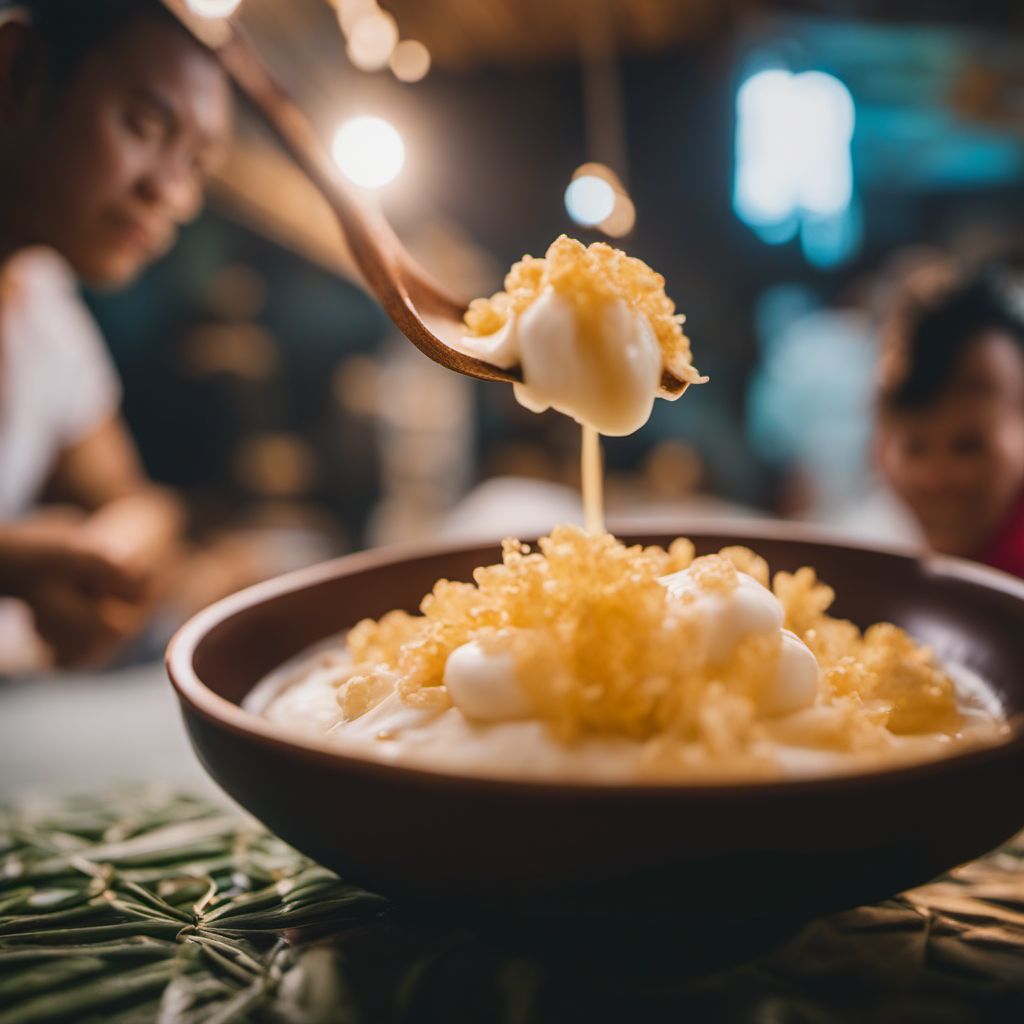
Dish
Khanom chan
Khanom chan is made by mixing rice flour, coconut milk, and sugar together. The mixture is then steamed in layers until it is cooked through. Once cooled, the khanom chan is cut into small squares and served with a sprinkling of shredded coconut on top. Khanom chan is a popular dessert in Thailand and is often served at special occasions such as weddings and festivals.
Origins and history
Khanom chan is believed to have originated in the Ayutthaya period of Thailand, which was between 1350 and 1767. It was originally made for the royal court and was considered a delicacy. Khanom chan is now enjoyed throughout Thailand and is a popular dessert at many restaurants and street food vendors.
Dietary considerations
Khanom chan is not suitable for those with gluten or dairy allergies.
Variations
There are many variations of khanom chan, including pandan-flavored and durian-flavored. Some recipes also call for the addition of tapioca pearls or mung bean paste.
Presentation and garnishing
Khanom chan can be presented on a decorative plate with a sprinkling of shredded coconut on top. Garnish with a sprig of mint or a slice of fresh fruit for an extra touch of color.
Tips & Tricks
To keep khanom chan fresh, store it in an airtight container in the refrigerator for up to 3 days.
Side-dishes
Khanom chan can be served with a side of fresh fruit or a scoop of ice cream for a more decadent dessert. It pairs well with a cup of tea or coffee.
Drink pairings
Tea or coffee are the perfect drink pairings for khanom chan.
Delicious Khanom chan recipes
More dishes from this category... Browse all »

Aamras
Indian cuisine

Aasmi
Indian cuisine
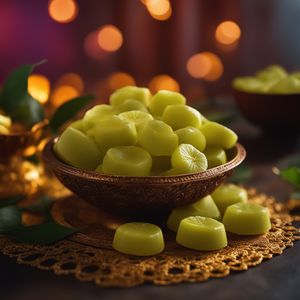
Agra petha
Indian cuisine

Aiyùbīng
Taiwanese cuisine

Ajdnek
Slovenian cuisine

Akafuku
Japanese cuisine

Akanés
Greek cuisine
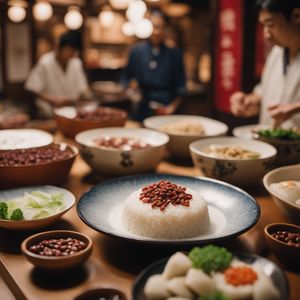
Akumaki
Japanese cuisine
More cuisines from this region... Browse all »

Bruneian cuisine
Bold, Complex, Spicy, Savory, Sweet

Burmese cuisine
Salty, Sour, Spicy, Umami, Sweet
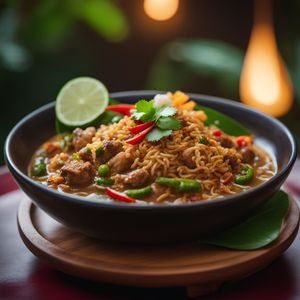
Cambodian cuisine
Salty, Sour, Spicy, Umami, Sweet

Christmas Island cuisine
Salty, Sour, Spicy, Umami, Sweet
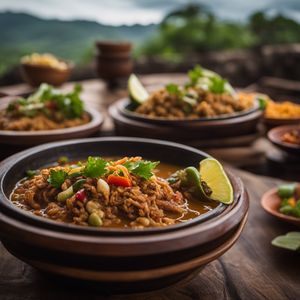
East Timor cuisine
Spicy, Savory, Sweet, Sour, Umami
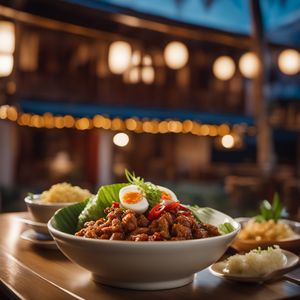
Filipino cuisine
Sweet, Sour, Savory, Spicy, Umami
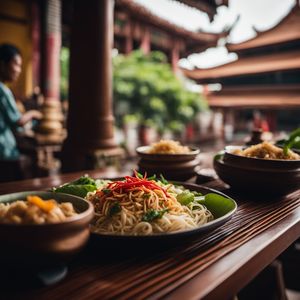
Lao cuisine
Savory, Spicy, Sour, Umami
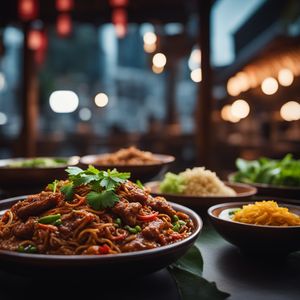
Malaysian cuisine
Spicy, Sweet, Sour, Savory

